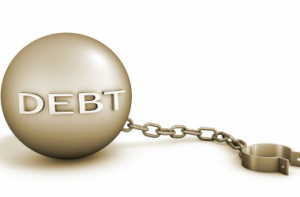 Today’s top story: Don’t be duped by these phone and email scams. Also in the news: Help with checking your finances, how a single mom paid off nearly $80K in debt in eight months, and 1 in 5 Americans are hiding this financial secret from their spouses.
Today’s top story: Don’t be duped by these phone and email scams. Also in the news: Help with checking your finances, how a single mom paid off nearly $80K in debt in eight months, and 1 in 5 Americans are hiding this financial secret from their spouses.
Don’t Be Duped by These Phone and Email Scams
Watching out for scammers.
Can’t Bear to Check Your Finances? Here’s Help
Ignorance isn’t bliss.
This single mom paid off $77,281 of debt in eight months—here are 5 steps she followed
Time to track everything.
1 In 5 Americans Are Hiding This Financial Secret from Their Spouses
Transparency is key.
 Today’s top story: Is your debt good or bad? Also in the news: How to get a copy of your tax returns or an IRS transcript, why you might not get $125 in Equifax settlement money, and 13 tips for throwing a budget-friendly kid’s birthday party.
Today’s top story: Is your debt good or bad? Also in the news: How to get a copy of your tax returns or an IRS transcript, why you might not get $125 in Equifax settlement money, and 13 tips for throwing a budget-friendly kid’s birthday party. Today’s top story: Dodge dealership dread with online used car sellers. Also in the news: What first-time home buyers should know about fixer-uppers, how to save for the future when it’s uncertain, and how long it takes for paid debt to be reported to credit bureaus.
Today’s top story: Dodge dealership dread with online used car sellers. Also in the news: What first-time home buyers should know about fixer-uppers, how to save for the future when it’s uncertain, and how long it takes for paid debt to be reported to credit bureaus.